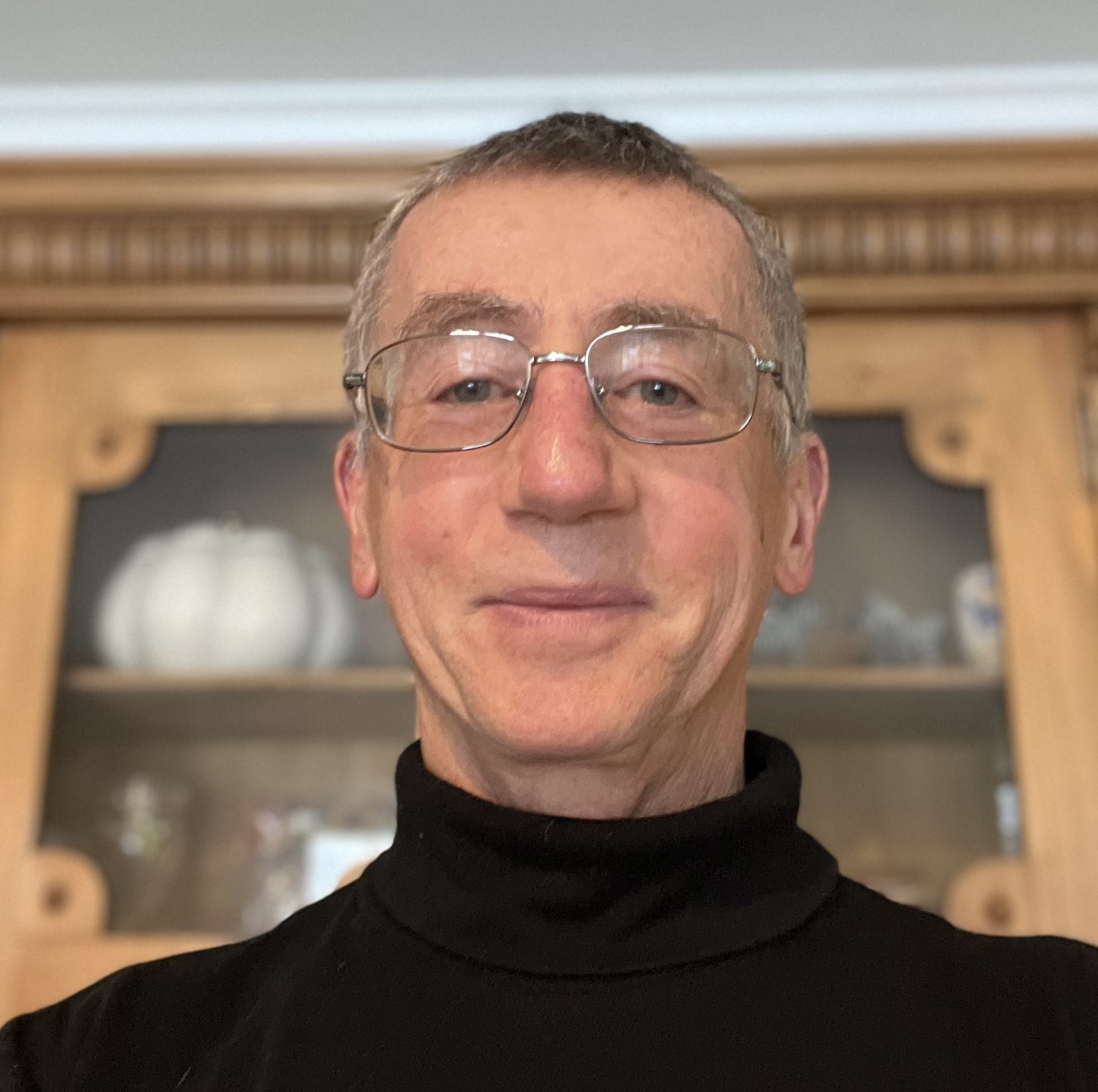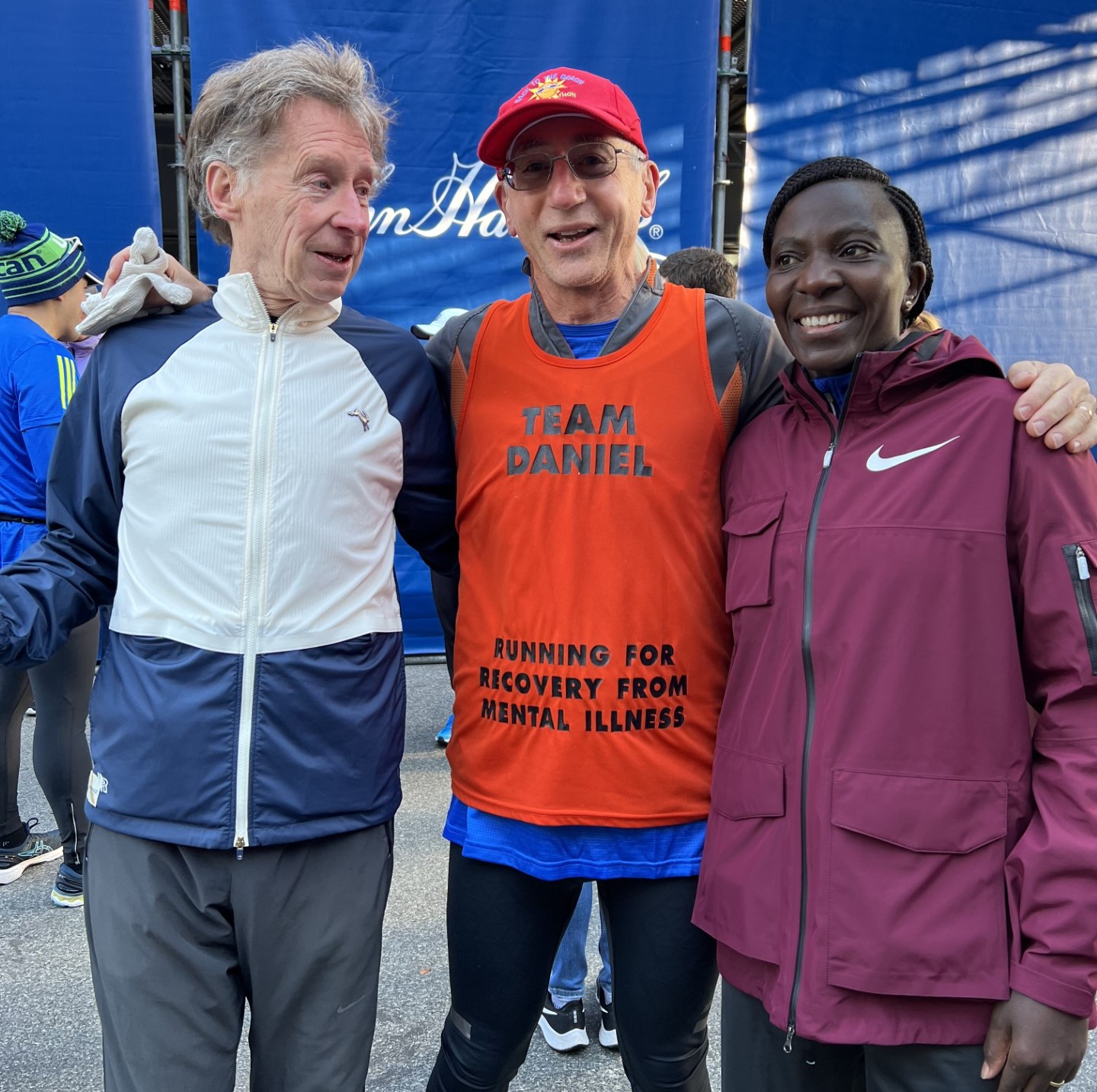 “Team Daniel Running for Recovery from Mental Illness” is a charity founded in 2013 to raise funds for schizophrenia research and advocacy, founded by Dr. Robert Laitman, his wife Dr. Ann Mandel Laitman, and their family. When the Laitmans’ son Daniel presented with symptoms of psychosis in 2006, they never dreamed that he would achieve a meaningful recovery, let alone that so much good would come out of his struggle with treatment-resistant schizophrenia.
“Team Daniel Running for Recovery from Mental Illness” is a charity founded in 2013 to raise funds for schizophrenia research and advocacy, founded by Dr. Robert Laitman, his wife Dr. Ann Mandel Laitman, and their family. When the Laitmans’ son Daniel presented with symptoms of psychosis in 2006, they never dreamed that he would achieve a meaningful recovery, let alone that so much good would come out of his struggle with treatment-resistant schizophrenia.
While Dr. Laitman was growing up, his father was a clinical psychologist. He planned to follow in his footsteps. However, as he excelled in science and math as an undergraduate, he considered psychiatry.
Dr. Laitman remembers his first rotation on a psychiatric ward in the late 70’s, where he described the care as “terrible.” The older antipsychotic medications (first generation) were in use, and patients often had unbearable side effects, while getting little benefit. Upon his graduation from medical school at Washington University in Saint Louis in 1983, Dr. Laitman decided to become an internist, and then eventually, to specialize in nephrology.
Dr. Laitman married Dr. Ann Mandel in 1986. Over the next decade, they had a daughter, a son and identical twin girls. Dr. Laitman describes this time of his life as remarkably busy with work, while his wife worked part-time and cared for their children. However, when his children were old enough to play soccer, he made time to coach their teams for over fourteen years.
In early elementary school, Dr Laitman’s son Daniel seemed to be struggling. He suffered from anxiety, and occasionally had a “meltdown.” He was sensitive to loud noises. At age eight, following an allergic reaction, he took steroids, which made him psychotic. Although the medication induced psychosis disappeared quickly, Dr. Laitman looks back on it as a warning sign.
From second grade onward, Daniel was diagnosed with ADD, began therapy, and took medication. But Dr. Laitman remembers Daniel as a happy kid. He had friends and looked forward to summer camp.
Unfortunately, Daniel’s struggles soon took a turn for the worse at age 15, during summer camp, when he began to hear voices. Command hallucinations took over his thinking, threatening to steal his soul. He was commanded to hold his arm in uncomfortable positions and not put his head down on a pillow.
As Daniel grew worse, the Laitmans began to read widely about schizophrenia and treatment, and look for advocacy organizations. Dr. Laitman remembers being told that he needed to simply “lower his expectations,” and that Daniel would have a “different life.” He remembers crying over his son’s impossible situation, although he almost never cried.
Despite the hopelessness he encountered, the Laitmans resolved to never give up on Daniel. After several months, it became clear that Daniel was resistant to schizophrenia medications. Looking for help, Dr. Laitman contacted Dr. Deborah Levy, who was the head of Harvard’s McClean Psychology Research Lab. At that time, an effective treatment for Daniel was becoming more urgent, as he was becoming suicidal.
Following extensive research and many conversations with experts, Dr. Laitman discovered the underutilized medication clozapine, which is the only medication for treatment-resistant schizophrenia. He was also warned that the medication should only be used for the most severe cases.
With careful monitoring, Daniel began clozapine in March of 2008 at age 17. Within weeks, it was apparent that clozapine was radically different than any other medication Daniel had tried. After a few months, his symptoms were soon in remission.
However, shortly after Daniel started clozapine, he developed aspiration pneumonia and severe constipation. These side effects were treated while he continued to take clozapine. In order to remain on clozapine, Daniel also needed weekly bloodwork, which was a challenge to coordinate with their pharmacy.
As the side effects of clozapine abated, Daniel was able to resume a normal life. Because of this, the Laitmans realized the great need to make clozapine more widely available to treatment-resistant adolescents, enabling many of them to achieve full symptoms remission. They also knew that the side effects needed to be managed carefully.
Dr. Laitman was still practicing nephrology, but he realized that becoming certified to prescribe clozapine (with the Risk Evaluation and Management Strategies, or REMS system) was within his reach. He began collecting Daniel’s blood by himself at home and managing Daniel’s medications.
By 2011-12, Dr. Laitman treated ten teenagers and young adults with treatment-resistant psychosis, prescribing them clozapine. As a nephrologist, Dr Laitman was accustomed to cross tapering medications, and he always introduced clozapine slowly to minimize side effects.
 In 2017, Dr. Laitman published a book together with his wife and Daniel titled “Meaningful Recovery from Schizophrenia with Clozapine.” In his book, he describes how to minimize and treat clozapine side effects in great detail, including how to treat rare side effects. During this time, Dr. Laitman contacted the organization which had told him to lower his expectations with a message: “Don’t grieve your children. Make them better!”
In 2017, Dr. Laitman published a book together with his wife and Daniel titled “Meaningful Recovery from Schizophrenia with Clozapine.” In his book, he describes how to minimize and treat clozapine side effects in great detail, including how to treat rare side effects. During this time, Dr. Laitman contacted the organization which had told him to lower his expectations with a message: “Don’t grieve your children. Make them better!”
Today, Dr. Laitman does not consider himself a psychiatrist but a “psychiatric internist.” The COVID pandemic led to a movement of doctors using telehealth. Today, thanks to telehealth, Dr Laitman sees over two hundred patients in thirty states whom he monitors on clozapine. Many travel to New York to see him in person once a year.
Thanks to Dr. Laitman and likeminded psychiatrists that work for the office of mental health, the use of clozapine has increased in their facilities from 2.8% to 20%. Today, he also travels around the country giving presentations about the use of clozapine and dispelling myths that clozapine should not be used or is dangerous.
For decades, clozapine has been used as a medication of last resort. Sometimes, even today, patients who fail several antipsychotic trials suffer for years before clozapine is even considered. Dr. Laitman’s mission is to introduce clozapine earlier on the patient’s journey to recovery, to offer the best outcome. Over the years, he has seen many success stories. He hopes that through his professional work, and also through the advocacy work of Team Daniel, more lives will be radically changed as Daniel’s has been.
Over the last fifteen years, Dr. Laitman has proposed a change in the position of clozapine from the drug of last resort to a drug that should be considered early in the first episode of psychosis in those not showing an optimal response with the first antipsychotic used. Clozapine can take the care of psychosis from good enough to optimal. Dr. Laitman believes that everyone who is fully engaged and has not shown an optimal response should be given this opportunity.
Pictured above are Dr. Laitman with Catherine Ndareba and Bill Rodgers (both four times Boston marathon winners) in the 2022 Boston marathon.

